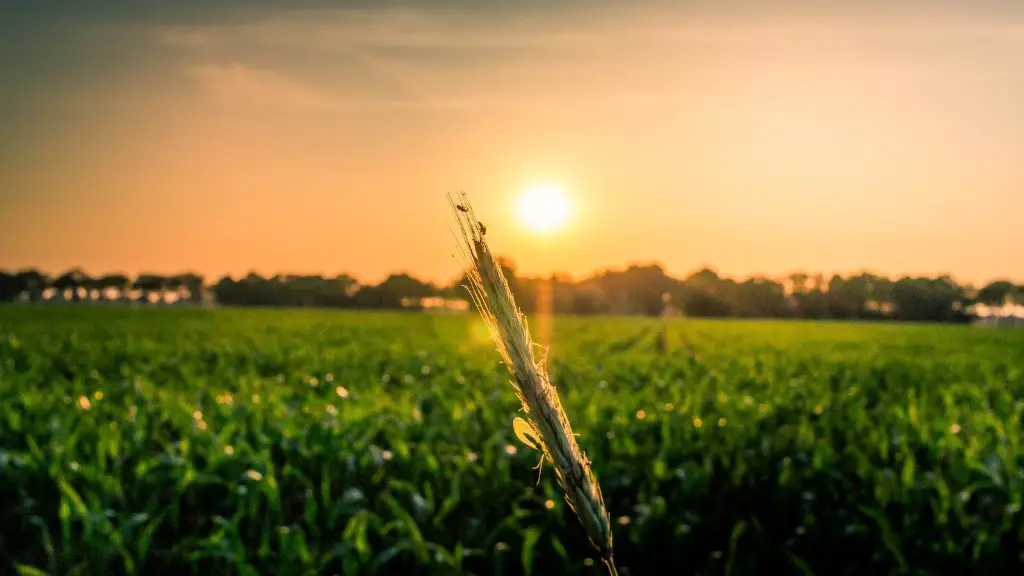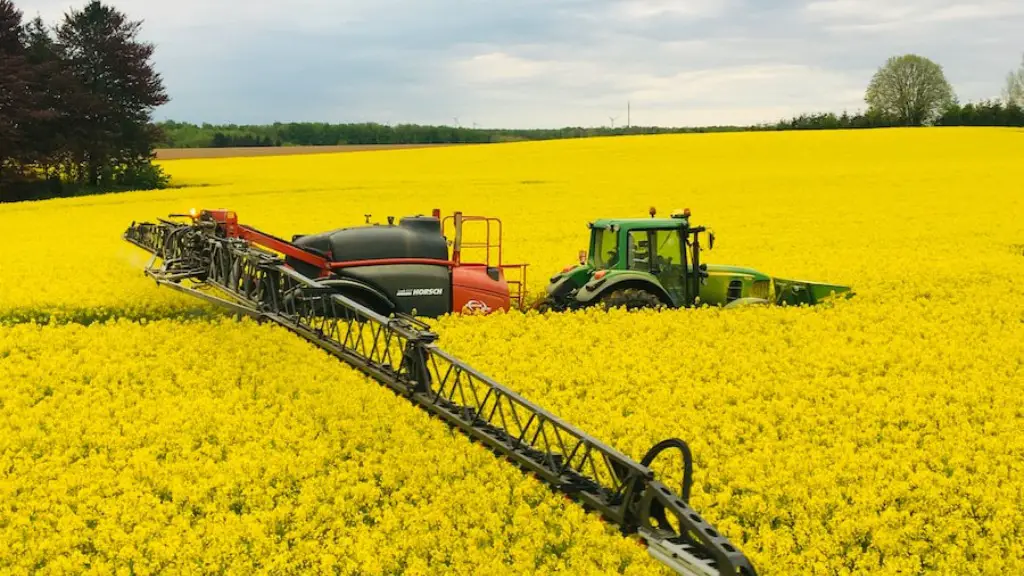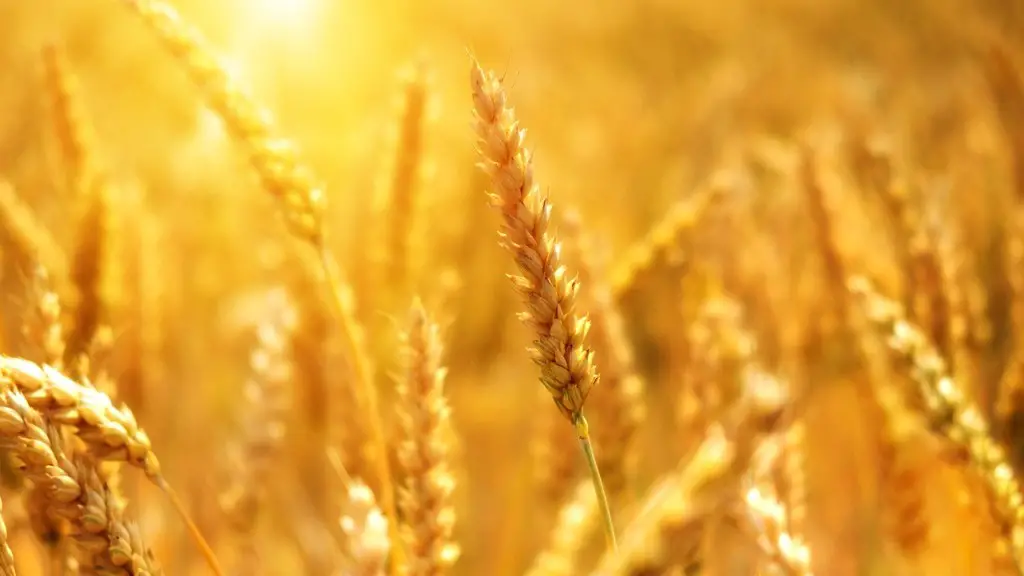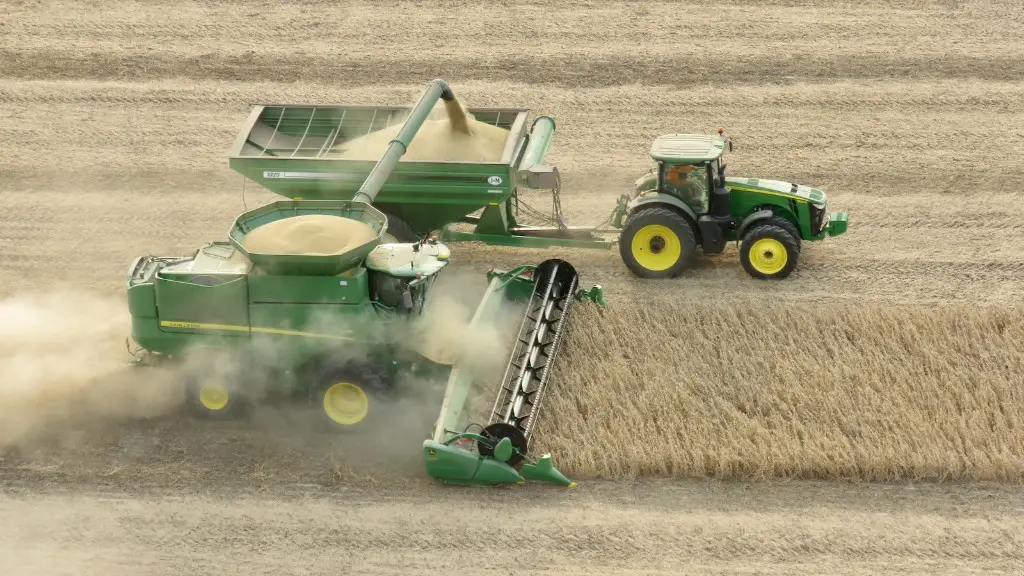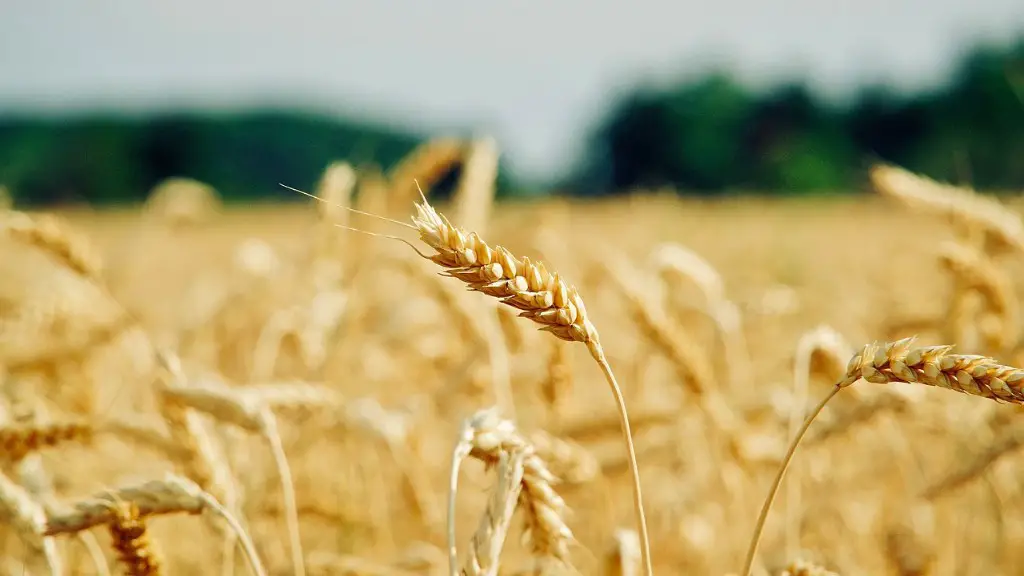Agriculture is the science, art and practice of producing plants and animals for human use. The benefits of agriculture are many and varied, but can be grouped into four main categories: food security, economic security, environmental security and social security.
There are many benefits of agriculture. Agriculture provides us with food, fiber, and fuel. It also helps to support the economy and creates jobs. Agriculture can help to conserve resources, such as water and soil, and it can also help to improve the environment.
What benefits does agriculture have to humans?
It is essential that we produce enough food, feed, fiber, and fuel to meet the needs of a rapidly growing population while also protecting the environment and expanding the natural resources supply. Sustainment of the economic viability of agriculture systems is essential to meeting these challenges.
Agriculture can be a powerful tool to reduce poverty. When farmers are able to sell their crops at a higher price, they are able to earn more money, which can help to raise their incomes and improve their food security. The World Bank Group is a leading financier of agriculture, and we are committed to helping farmers in developing countries to access the markets they need to succeed.
How does agriculture benefit the environment
Pasture and cropland habitat is critical for many species and when managed sustainably, can help to preserve and restore critical habitats, protect watersheds, and improve soil health and water quality.
Sustainable agriculture has many benefits that make it a great choice for farmers and consumers alike. One of the main benefits is that it reduces costs. Sustainable agriculture practices can help farmers save money on inputs like water, energy, and fertilizer. Additionally, it can help prevent soil erosion, which can be costly to repair. Another benefit of sustainable agriculture is that it is animal-friendly. By using practices like rotational grazing, farmers can provide a better environment for their animals. This can improve animal welfare and lead to better quality meat and dairy products. Additionally, sustainable agriculture promotes biodiversity. This helps improve food production by providing a greater variety of crops and by reducing the need for pesticides and other chemicals. Additionally, it can improve public health by providing healthier food options.
What are the 10 benefits of agriculture?
Agriculture is vital for many reasons. It is the main source of raw materials for industries, it is important to international trade, it plays a big role in a nation’s revenue, it provides employment, it is crucial to a country’s development, it can help heal the environment, and it goes hand-in-hand with war.
Agriculture can have a positive impact on the environment by increasing biodiversity. This can lead to healthier soil, less erosion, better water conservation, and healthier pollinators. By taking steps to increase biodiversity on farmland, farmers can help create a more sustainable and healthy environment.
What are pros and cons of agriculture?
Agriculture has been a vital part of human existence for millennia. It has led to the development of cities and civilizations and allowed humans to specialize in different fields such as art, leadership, and writing. The domestication of wheat, corn, and rice were key steps in the development of agriculture, and the benefits of this technology have been numerous. However, there are also some drawbacks to agriculture, such as conflicts over access to food and the potential for weather to damage crops.
Agriculture is a main source of raw materials for many industries. The agricultural products such as cotton, jute, sugar, tobacco, and oils are used in many industries. These products are processed and used in different industries such as textile, sugar, tobacco, and edible oil industries. Many other industries such as fruit and vegetable processing, and rice husking also get their raw material from agriculture.
Why is agriculture important for the future
Sustainable agriculture can help to reduce these emissions and help to feed the growing population by producing food in a more efficient and environmentally friendly way. Sustainable agriculture practices can help to improve soil health, reduce water usage, and reduce the use of harmful pesticides and herbicides.
There is a lot of potential for sustainable agriculture to make a positive impact on the environment and the world’s food supply. However, it is important to note that sustainable agriculture is not a silver bullet solution to all of the world’s problems. It is one tool that can be used to help make a difference.
The results of agriculture often put pressure on the land and water resources of the globe, which can lead to land degradation (such as soil erosion and salinization), and eutrophication. In addition, agriculture is often associated with greenhouse gas emissions.
What are the 3 benefits of green agriculture?
Sustainable agriculture is important for the environment and also for the future of food production. It helps to protect natural resources, reduce erosion, improve air and water quality, increase biodiversity, and decrease carbon emissions.
Key Production Stats:
-Cow milk is the top agricultural product in 37 countries, while wheat is the top agricultural product in 14 countries
-Corn is the most produced crop globally with 11 billion tons, followed by wheat with 7609 million tons and rice with 7567 million tons.
What is the most important thing for agriculture
The use of modern machinery in agricultural lands has increased the production of crops, which has in turn provided more raw materials to industries. This has led to increased efficiency and productivity in many industries.
Farmers have always provided critical services to humanity, and traditional farming methods have played a big role in that. Even though modern methods have largely replaced traditional ones, there are still a few traditional farming techniques in use that are popular among farmers. These methods provide important cultural and ecological services to human beings, and have helped to protect natural resources, maintain biodiversity, and enhance food security.
How does agriculture reduce poverty?
The impact of agricultural growth on poverty is highly context-specific. In some cases, the very poorest people benefit from agricultural growth through increased demand for their labour. Agricultural growth increases the probability of obtaining employment, and it may increase the salary level, thereby increasing the income that can be accrued from selling labour. In other cases, the poorest people may be adversely affected by agricultural growth, for example if they are displaced by large-scale commercial farming operations.
Agriculture has brought about many important changes in human life. For example, it has led to people settling down in one place instead of being nomadic. This has allowed them to grow their own food, which has been a vital development in human history. Additionally, agriculture has led to the development of civilizations and the rise of cities.
Why is agriculture important to our community
Community agriculture can play an important role in fostering environmental awareness and activism among youth and adults. Additionally, it can help to decrease stormwater runoff and air pollution, and increase biodiversity and species habitat. By engaging in community agriculture, people can become more aware of the issues facing the environment and be more motivated to take action to protect it.
Agriculture has always been the cornerstone of human existence, providing food for people and raw materials for industries. It is essential for the development of communities, as it creates jobs and drives economic growth.
Final Words
There are many benefits of agriculture. Agriculture provides us with food, fuel, and fiber. It also helps to keep our environment healthy and provides habitat for many plants and animals. Agriculture also provides us with employment and helps to support our economy.
The benefits of agriculture are many and varied, but can be summed up with three main points. First, agriculture provides food for people and animals. Second, agriculture can be used to produce other products, such as clothing, fuel, and building materials. Third, agriculture can help to ensure environmental sustainability by providing a way to produce food without damaging the natural environment.
